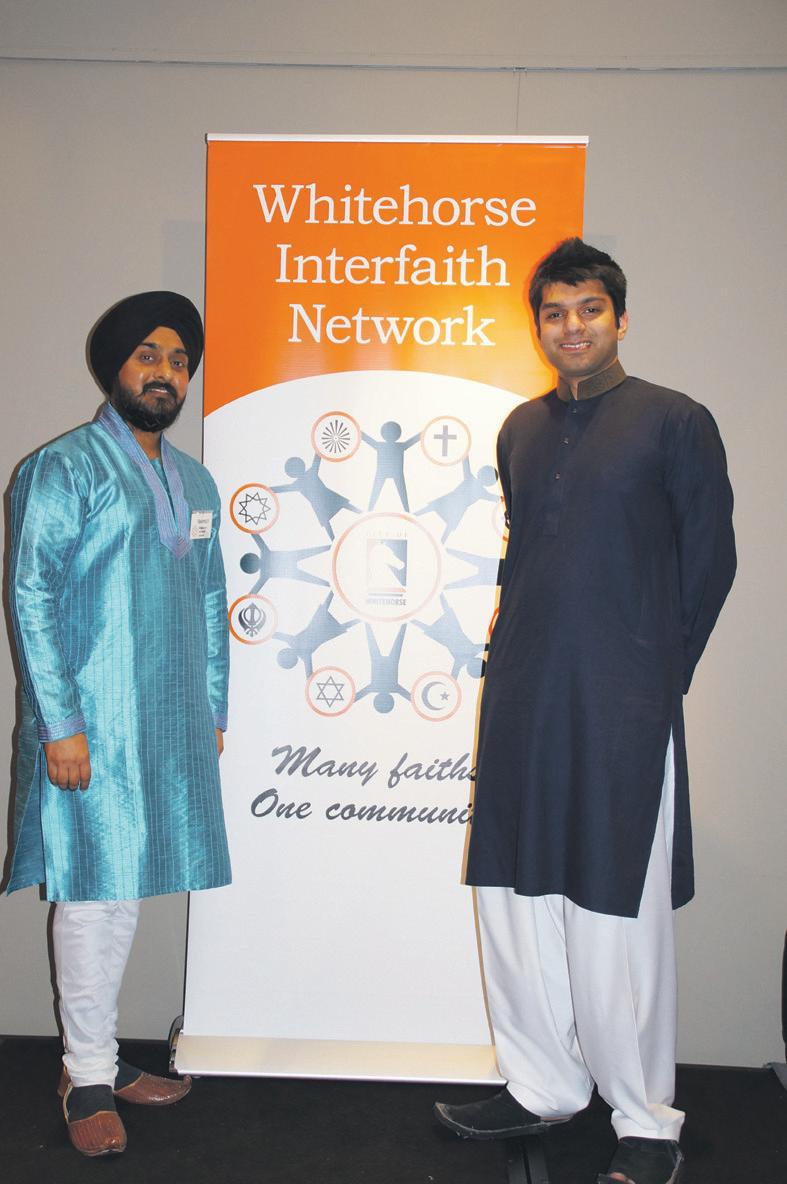
3 minute read
Many ways to get there
from 2013-09 Melbourne
by Indian Link
Migrants discuss their experiences on first arriving in Australia and the importance of assimilation
By CARL BUHARIWALA
The Whitehorse Interfaith Network (WIN) hosted an important seminar on migration and faith in July 2013, being the month of multicultural awareness. WIN consists of a group of volunteers that believe that faith should be a unifying force in all communities. Held at the Whitehorse Centre in Nunawading, people from all cultures and faiths gathered to witness three guest speakers voice experiences of their journey to Australia.
Najaf Mazari, distinguished author and businessman originating from the Hazara people from Afghanistan, shed light on his experience when he fled Afghanistan in 2001 and made his way to Australia. He talked about the time spent in the Woomera Detention Centre, offering insights into the life of a migrant arriving here. Pari Sanyu, of the Mizo-Chin people from the borders of Burma and India, explored the intersection between faith and culture, and how it is important to negotiate differing religious and cultural practices to associate better with the Australian community. Finally, Dilnaz Billimoria, of the Zoroastrian Parsi people from India presented an important message that migrants from any faith must give back to Australia, in return for what this country has to offer. This requires knowledge and an understanding of the Australian way of life.
Ms Sanyu expressed her concern about practicing the rituals of her religion and culture in Australia. On arriving, she realised that there were very few people from her community here, which led to a feeling of isolation. She remained hesitant about how to practice her faith in Australia, but after joining an interfaith network, her tolerant and kindhearted Australian friends taught her important aspects of their culture.
“In hindsight, it is a hindrance for a migrant to have preconceptions of what is and is not allowed or accepted in their new country. One should arrive with an open mind and remain positive in their quest to seek a new home. They should be willing to change and adapt,” she stated.
This point resonated throughout the speeches by all three speakers. Regardless of which faith or culture one belongs to, knowledge and an understanding of the social, working and living conditions in Australia is essential. This allows one to participate and feel included in their new home and what it has to offer. This will prevent the possibility of conflict, as migrants will be able to communicate and integrate with their new neighbours. Differing customs and practices should be negotiated so that both parties feel at peace in their community.
However, Mr Mazari raised an important issue that faces many migrants who decide to move here. “Most of them have completely no idea of what
Australia is like and how they will fit in, and this can restrain their ability to move forward in their new home. Although this is an issue that is hard to fully rectify, steps should be taken to enlighten and educate migrants before they arrive,” he stated. Even though this might not change their view on Australia, it is best to be honest with future migrants. This will make their arrival here, with its many processes, not an arduous journey.
Although many Australians are passionate about the treatment of migrants and encourage the Australian government to improve their policies, all three speakers noted that they are very grateful that they have been allowed to find shelter in a safe and opportunity-filled country. All were positive about their outcomes and explained that whilst it was troublesome and stressful, the reward was worth the wait. They were thrilled to be accepted! Australians should also be excited with the influx of new migrants.
Dilnaz Billimoria shared a poignant piece of history from when the Parsis fled Iran in the 8th century and sought refuge in Sanjan, on the west coast of India. On arrival, the Parsis showed the Indian inhabitants that whilst milk on its own tastes bland, adding sugar to the milk sweetens the taste. Also, not a drop of milk was spilled. Ms Billimoria drew on this analogy and explained how migrants provide Australia with hope and opportunity. They bring culture and language, and add variety to song and food.
Mr Mazari also explained the importance of migrants who may not bring financial resources, but they bring their skills, experience and love, which are important resources for Australia.
Important MPs and councillors, including Hon Graham Watt, attended the event, allowing WIN to showcase their efforts in providing a useful seminar to the public on migration and faith. Such events are important as the public gains insights into the experiences of fellow Australians who have taken different paths to come here. There are many ways to get to Australia, and migrating as an asylum seeker is currently an important topic. The experiences of past migrants must be heard, to not only inform the community, but to take heed of their advice and suggestions.










